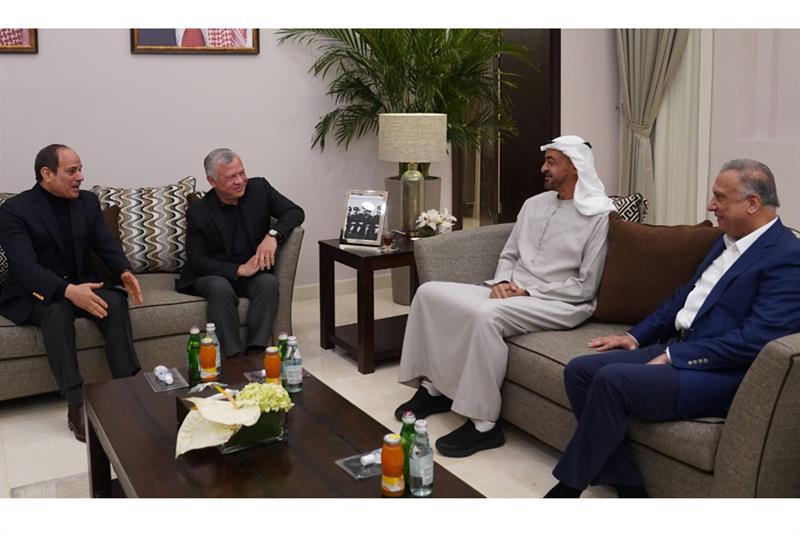
Egypt's President Abdel-Fattah El-Sisi, Jordan's King Abdullah II, Abu Dhabi's crown prince, Sheikh Mohammed bin Zayed Al-Nahyan, and Iraq's Prime Minister Moustafa Al-Kadhimi during a meeting in the Jordanian port city of Aqaba on Friday 25 March 2022 (photo: Egyptian presidency)
The meeting witnessed an exchange of views on international and regional political and economic situations, including means of dealing with the repercussions of the current global economic circumstances on food security, energy and trade sectors in a manner that preserves regional stability and security, Rady added.
The meeting, according to Rady, also tackled means of promoting cooperation ties between the four countries in all fields.
The Iraqi prime minister's office said that the meeting dealt with ways of strengthening joint Arab action in various fields, especially in mitigating the impacts of the economic crisis in the food security and energy sectors.
The Arab leaders also discussed means of promoting economic cooperation, and increasing trade exchange in a way that achieves the interests of the four countries' peoples, Al-Kadhimi's office added in a series of tweets following the meeting.
Supply chains of grain from the Black Sea ports to the Middle East and North Africa region has been disrupted by the Russia-Ukraine war. Russia and Ukraine together account for nearly 30 percent of the world's wheat exports.
The war, which started on 24 February, caused soaring prices in the international markets and triggering inflationary pressures all over the world, including Egypt.
Egypt – which gets 80 percent of its imported wheat from the two warring countries – has said over the past weeks that its wheat stocks would be sufficient till the end of the year.
The country is also currently setting its eyes on increasing local wheat cultivation and supply, as well as buying from alternative markets to meet its grain needs.
On Wednesday, Egypt's cabinet said the government was working on an integrated package of financial measures to support various economic sectors and the groups hit hardest by the external shocks.
Short link: